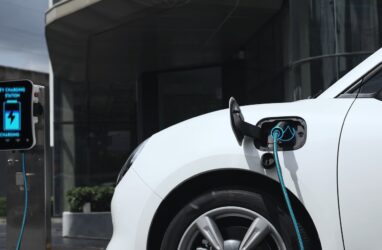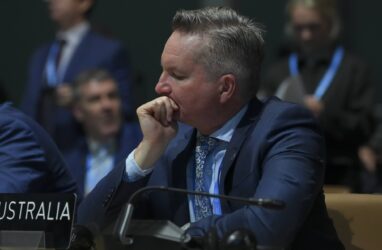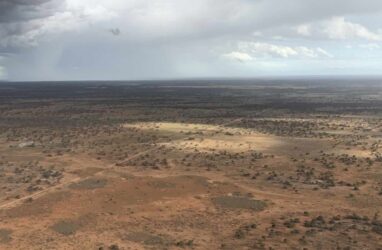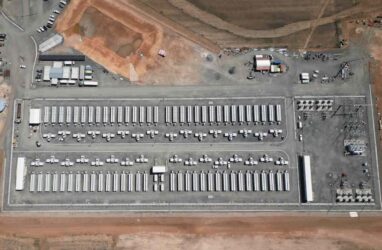Feed aggregator
Foreign firms taking billions of litres from UK aquifers to make bottled water
Coca-Cola extracts largest amount of freshwater of any drinks company in England, FoI request finds
Foreign multinational companies are extracting billions of litres of water from British aquifers to sell as bottled water, the Guardian can reveal.
Coca-Cola extracts the largest amount of freshwater of any drinks company in England, the data obtained through freedom of information legislation shows. It has a licence to extract 1.59bn litres of water a year from boreholes in Sidcup, Kent for its soft drinks. On top of that, it has the right to take 377m litres for its bottled water brands Glaceau Smartwater and Abbey Well from Morpeth in Northumberland.
Continue reading...NZ Market: NZUs trade just above auction price floor as anticipation grows
After nearly 10 years of debate, COP29’s carbon trading deal is seriously flawed
PNG environmental groups oppose carbon market regulations being tested on “guinea pig” communities
The Australia-Pacific bid to host UN climate talks in 2026 is in limbo. What now?
Carnival cruise line emitted more CO2 in 2023 than Scotland’s biggest city – report
World’s largest cruise line named Europe’s most climate-polluting, despite investing millions in cleaner technologies
The world’s largest cruise line company is responsible for producing more carbon dioxide in Europe than the city of Glasgow, a report has found.
Analysis by the Transport and Environment (T&E) campaign group, provided to the Guardian, found Carnival to be the most climate-polluting cruise company sailing in Europe in 2023.
Continue reading...Plibersek defends coal mine approvals amid blockades of Newcastle port
The post Plibersek defends coal mine approvals amid blockades of Newcastle port appeared first on RenewEconomy.
From finance deal to carbon trade: Here’s what was – and wasn’t – achieved at the COP29 climate talks
The post From finance deal to carbon trade: Here’s what was – and wasn’t – achieved at the COP29 climate talks appeared first on RenewEconomy.
Rooftop solar and EVs will dominate our grids: How do we reform the energy system around them?
The post Rooftop solar and EVs will dominate our grids: How do we reform the energy system around them? appeared first on RenewEconomy.
Australia’s bid to host climate COP for first time on hold as fossil lobby ups the ante at fractious Baku talks
The post Australia’s bid to host climate COP for first time on hold as fossil lobby ups the ante at fractious Baku talks appeared first on RenewEconomy.
Massive 70 GW wind and solar project that straddles Nullarbor given environmental criteria
The post Massive 70 GW wind and solar project that straddles Nullarbor given environmental criteria appeared first on RenewEconomy.
Labor girds for tricky fight for green hydrogen tax credits in last week of parliament
The post Labor girds for tricky fight for green hydrogen tax credits in last week of parliament appeared first on RenewEconomy.
South Australia’s biggest battery charges up as new wave of storage prepares to enter grid
The post South Australia’s biggest battery charges up as new wave of storage prepares to enter grid appeared first on RenewEconomy.
As Cop29 wraps up and the climate crisis gathers pace, Australia’s dash for gas is confounding | Bill Hare
Nearly all observers believe Chris Bowen is strongly committed to action. Most agree that can’t be said for his party
Cop29 in Baku has concluded but its outcome is disappointing – in many dimensions. Its decisions on finance – agreeing that the developed world would provide US$300bn a year by 2035 – come nowhere close to what’s needed. Ultimately, it may even be poisonous because of its lack of ambition and muddled scope – it does not even cover loss and damage.
Baku saw little sense of urgency or increased climate action, despite the universal message from scientific studies, including the Climate Action Tracker. Our global update this year found that in the last three years there’s been virtually no improvement in either action on the ground, nor ambition to take action in the future. And this is despite a series of seemingly never-ending, global warming-linked deadly catastrophes unfolding around the world.
Continue reading...COP29: Reactions to the new Baku Finance Goal, Article 6 deal
‘Divorce’ in songbirds: extreme weather pushes couples past breaking point
Green hydrogen could decarbonise entire industries in NZ – but there’s a long way to go
The Guardian view on Cop29: poor-world discontent over a failure of rich countries to deliver | Editorial
A rushed final text in Baku strains trust between nations, as inadequate climate finance commitments leave vulnerable countries calling for justice
The hasty imposition of a deal at the UN climate conference, Cop29, in Azerbaijan, over the objections of poorer nations has fractured global trust and undermined recent progress. This was supposed to be the “finance Cop” when two dozen industrialised countries – including the US, Europe and Canada – promised to pay developing nations for the damage caused by their rise. Instead, developing nations – led by a group including India, Nigeria and Bolivia – say this weekend’s agreement for $300bn a year in 2035 is too little, too late. Worse, rich-world governments will be able to escape their obligations by being able to rely on cash from private companies and international lenders.
Independent experts say the developing world, excluding China, would need $1.3tn a year by 2035 to fund its green transition and keep temperature rises in line with the Paris agreement. The climate finance target, pushed through by the Azerbaijani chair, is described by poor nations as a death sentence for those already drowning under rising seas and facing devastating costs.
Continue reading...Cop29 climate finance deal criticised as ‘travesty of justice’ and ‘stage-managed’
Some countries say deal should not have been done and is ‘abysmally poor’ compared with what is needed
The climate finance deal agreed at Cop29 is a “travesty of justice” that should not have been adopted, some countries’ negotiators have said.
The climate conference came to a dramatic close early on Sunday morning when negotiators struck an agreement to triple the flow of climate finance to poorer countries.
Continue reading...









